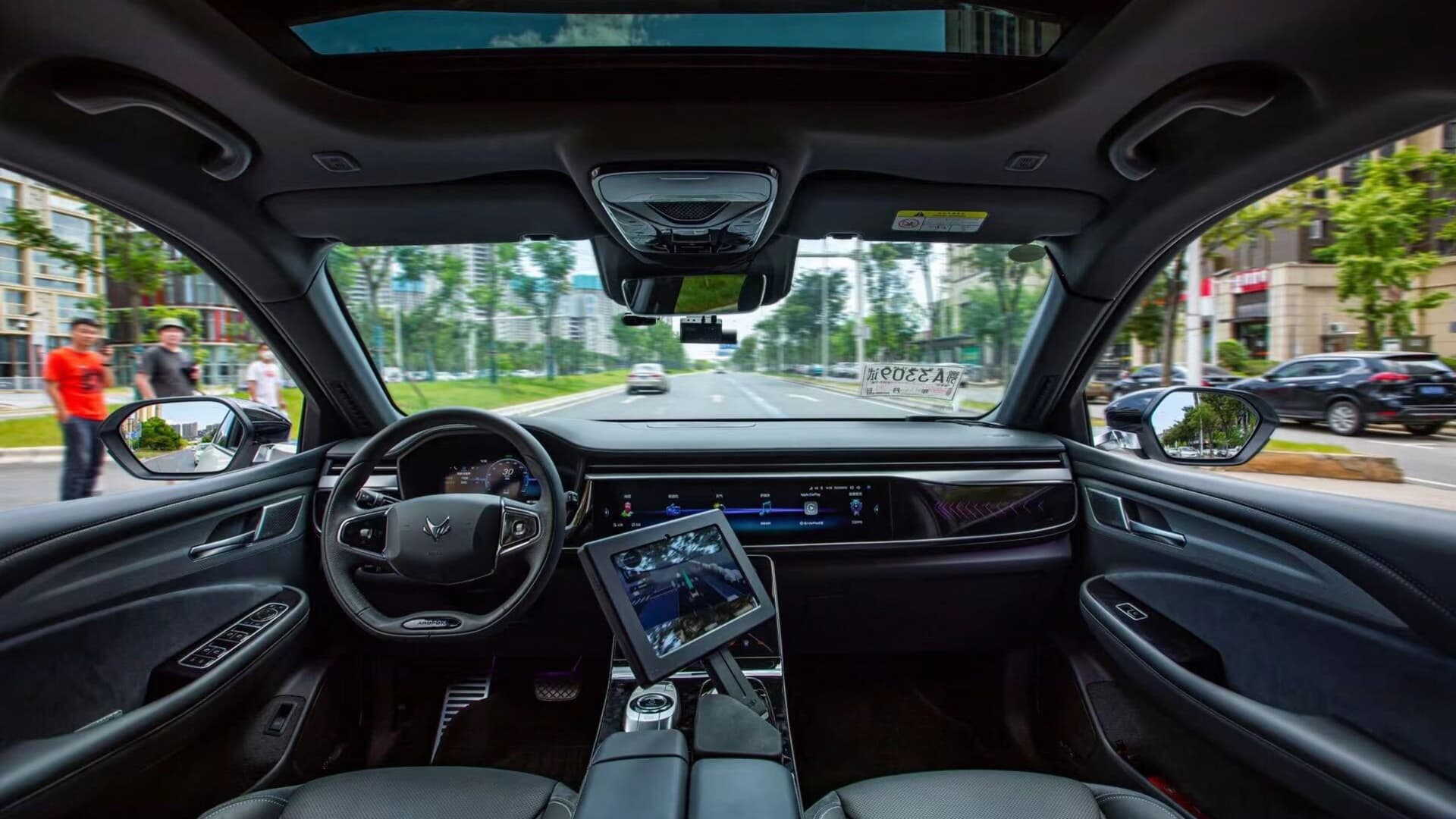BEIJING — Chinese tech company Baidu is reporting slower growth in its Apollo Go robotaxi rides than in prior quarters.
Figures Baidu reported Thursday showed the number of robotaxi rides operated publicly grew by 26% year-on-year in the first half of the year to a monthly average of 287,500 rides, according to CNBC calculations.
That’s down sharply from year-on-year growth of 184% in the first half of 2023, for a monthly average of 229,000 rides.
Some of the cars still require a safety driver and are not fully autonomous.
Baidu is one of the major operators of public-facing robotaxis in China, where regulators in parts of Beijing and cities such as Wuhan — Apollo Go’s largest operating region — have allowed the companies to collect fares.
Apollo Go has cumulatively operated 7 million rides as of July 28, Baidu said Thursday. That’s up from 6 million as of April 19. The company first crossed the 1 million mark two years ago in July 2022.
In nearly all parts of Wuhan, Baidu’s Apollo Go robotaxis now operate fully autonomously with no safety staff on board, Baidu CEO Robin Li said on an earnings call Thursday, according to a FactSet transcript.
“This has a significant impact on costs,” he said.
A surge of interest in the Wuhan robotaxis in early July coincided with a rapid rise in people turning to ride-hailing jobs, raising concerns about the impact of automation on employment.
Apollo Go only has around 1% share of the ride-hailing market in Wuhan, Li said. “Scaling will be a gradual process and could take many years.”
He described the local fleet as consisting of around 400 robotaxis, without reiterating longer-term goals.
Baidu previously said it had more than 500 robotaxis operating in Wuhan, and planned to increase that to 1,000 by the end of the year.
A tiny fraction of ride-hailing
The company operated around 336,000 Apollo Go rides in China last month as of July 28, CNBC calculations showed. That’s about 23% above the monthly average in the third quarter of 2023.
With growth above 20%, the increase in robotaxi rides is still faster than that of ride-hailing, but at a far smaller scale.
Didi said earlier this week that gross transaction value in China rose by 8.7% year-on-year in the three months ended June 30. However, its average daily transactions reached a record of 33 million.
“Even with these milestones, our share in the entire ride-hailing service market is very small,” Baidu’s Li said. “It will take many years for us to reach a meaningful market share in China or elsewhere.”

ivermectin 3 mg for humans for sale – ivermectin 6 mg pills tegretol 200mg pills
order isotretinoin generic – isotretinoin 40mg for sale linezolid without prescription
amoxicillin uk – valsartan 160mg without prescription order combivent 100 mcg
omnacortil 20mg ca – buy prednisolone 5mg sale prometrium 200mg over the counter
order amoxiclav pill – order cymbalta sale buy cymbalta sale
buy monodox sale – glucotrol 5mg price glucotrol 10mg price
buy augmentin cheap – purchase amoxiclav buy generic duloxetine online
buy generic rybelsus 14mg – semaglutide 14 mg generic buy generic periactin for sale
cost tizanidine 2mg – generic hydrochlorothiazide microzide order online
sildenafil 20 mg – generic cialis online buy cialis 20mg pills
purchase lipitor pills – order atorvastatin 40mg sale zestril 5mg sale
order cenforce 100mg pill – buy chloroquine pills buy glycomet for sale
order atorvastatin 20mg online cheap – buy lisinopril purchase zestril generic
order prilosec for sale – brand omeprazole 10mg tenormin 50mg sale
buy methylprednisolone 4 mg – lyrica cheap buy aristocort 10mg generic
purchase clarinex online – purchase loratadine generic dapoxetine usa
buy generic cytotec – order xenical 120mg online diltiazem 180mg without prescription
purchase domperidone online cheap – cyclobenzaprine cheap buy flexeril cheap
purchase motilium pill – cost domperidone 10mg flexeril 15mg canada
order inderal generic – order methotrexate 2.5mg for sale methotrexate sale
buy generic medex – coumadin where to buy where can i buy cozaar
generic levofloxacin – zantac without prescription buy cheap generic zantac
order generic esomeprazole 20mg – generic imitrex 50mg order sumatriptan 50mg pills
buy mobic 7.5mg sale – order meloxicam generic flomax 0.2mg cost
order zofran 8mg online cheap – ondansetron over the counter buy simvastatin medication
buy generic valacyclovir for sale – buy valtrex 500mg pill order fluconazole 200mg online
provigil 100mg uk order provigil 100mg online buy provigil 100mg online cheap order provigil 200mg for sale buy modafinil 200mg oral provigil 100mg provigil 100mg tablet